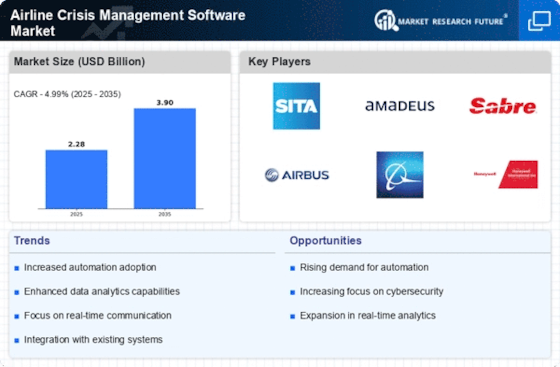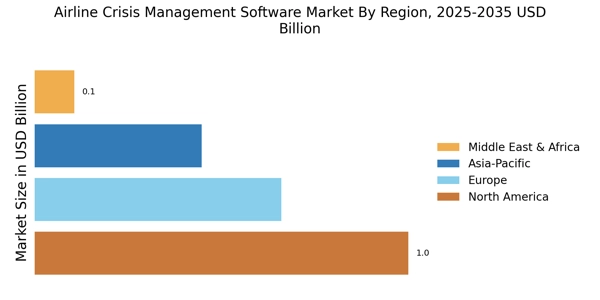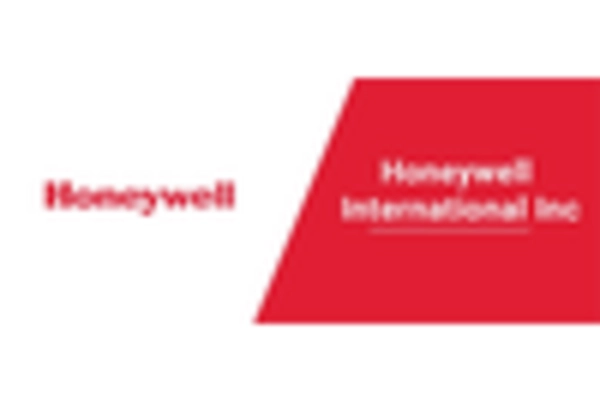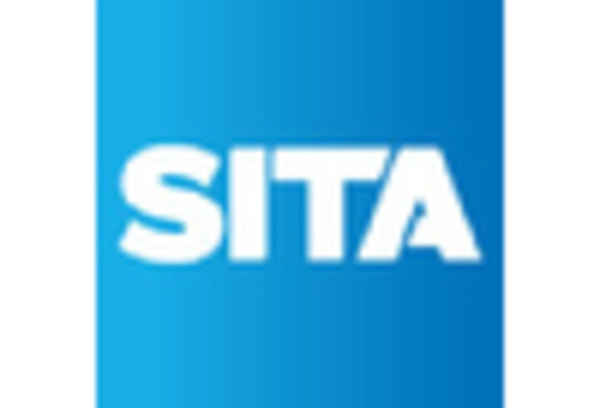Emphasis on Enhanced Customer Experience
The airline crisis management software Market is increasingly influenced by the emphasis on enhanced customer experience. Airlines are recognizing that effective crisis management directly impacts customer satisfaction and loyalty. In an era where customer expectations are at an all-time high, the ability to manage crises efficiently is paramount. Software solutions that facilitate real-time communication and provide timely updates to passengers are becoming essential. Airlines that prioritize customer experience during crises can potentially see a 20% increase in customer retention rates. This focus on customer-centric crisis management is reshaping the software landscape, as airlines seek solutions that not only address operational challenges but also enhance the overall passenger experience.
Technological Advancements and Innovation
The Airline Crisis Management Software Market is experiencing a wave of technological advancements and innovation. Emerging technologies such as artificial intelligence, machine learning, and cloud computing are transforming the landscape of crisis management. These innovations enable airlines to develop more sophisticated software solutions that enhance predictive capabilities and streamline crisis response processes. For instance, AI-driven analytics can identify patterns in crisis data, allowing airlines to anticipate potential issues before they escalate. The integration of these technologies is expected to drive market growth, with projections indicating a compound annual growth rate of 15% over the next five years. As airlines seek to leverage technology for improved crisis management, the demand for innovative software solutions is likely to increase.
Growing Focus on Data-Driven Decision Making
In the Airline Crisis Management Software Market, there is a pronounced shift towards data-driven decision making. Airlines are increasingly leveraging analytics and data insights to inform their crisis management strategies. This trend is indicative of a broader movement within the aviation sector, where data is seen as a vital asset for enhancing operational resilience. By utilizing sophisticated software tools, airlines can analyze past incidents and predict potential crises, allowing for proactive measures. Reports suggest that airlines employing data analytics in their crisis management processes experience a 25% improvement in incident resolution times. This reliance on data not only aids in effective crisis management but also fosters a culture of continuous improvement within the industry.
Increasing Demand for Operational Efficiency
The Airline Crisis Management Software Market is witnessing a surge in demand for operational efficiency. Airlines are increasingly recognizing the necessity of streamlining their crisis response processes to minimize disruptions. This trend is driven by the need to enhance customer satisfaction and maintain operational continuity. According to recent data, airlines that implement effective crisis management software can reduce response times by up to 30%, thereby improving overall efficiency. As competition intensifies, the ability to respond swiftly to crises becomes a critical differentiator. Consequently, the integration of advanced software solutions is becoming a priority for airlines aiming to optimize their operations and ensure resilience in the face of unforeseen challenges.
Regulatory Pressures and Compliance Requirements
The Airline Crisis Management Software Market is significantly shaped by regulatory pressures and compliance requirements. As governments and aviation authorities impose stricter regulations regarding crisis management protocols, airlines are compelled to adopt comprehensive software solutions. These tools assist in ensuring compliance with industry standards and facilitate the documentation of crisis response efforts. Recent studies indicate that airlines that utilize dedicated crisis management software are 40% more likely to meet regulatory requirements effectively. This trend underscores the importance of integrating compliance features within crisis management software, as non-compliance can lead to severe penalties and reputational damage. Consequently, the demand for robust software solutions that address regulatory challenges is on the rise.

















